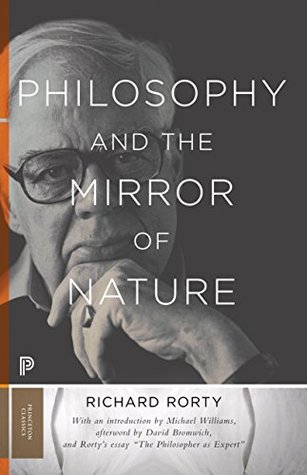Before Locke, it would not have occurred to anyone to look for foundations for knowledge in the realm of the senses. Aristotle, to be sure, had remarked that we cannot be in error about how things appear to us, but the idea of basing knowledge on appearances would have struck both him and Plato as absurd. What we want to have as an object of knowledge is precisely what is not an appearance, and the idea of propositions about one sort of object (the appearances) being evidence for propositions about another sort of object (what is really there) would not have made sense to either of them.
Welcome back. Just a moment while we sign you in to your Goodreads account.


